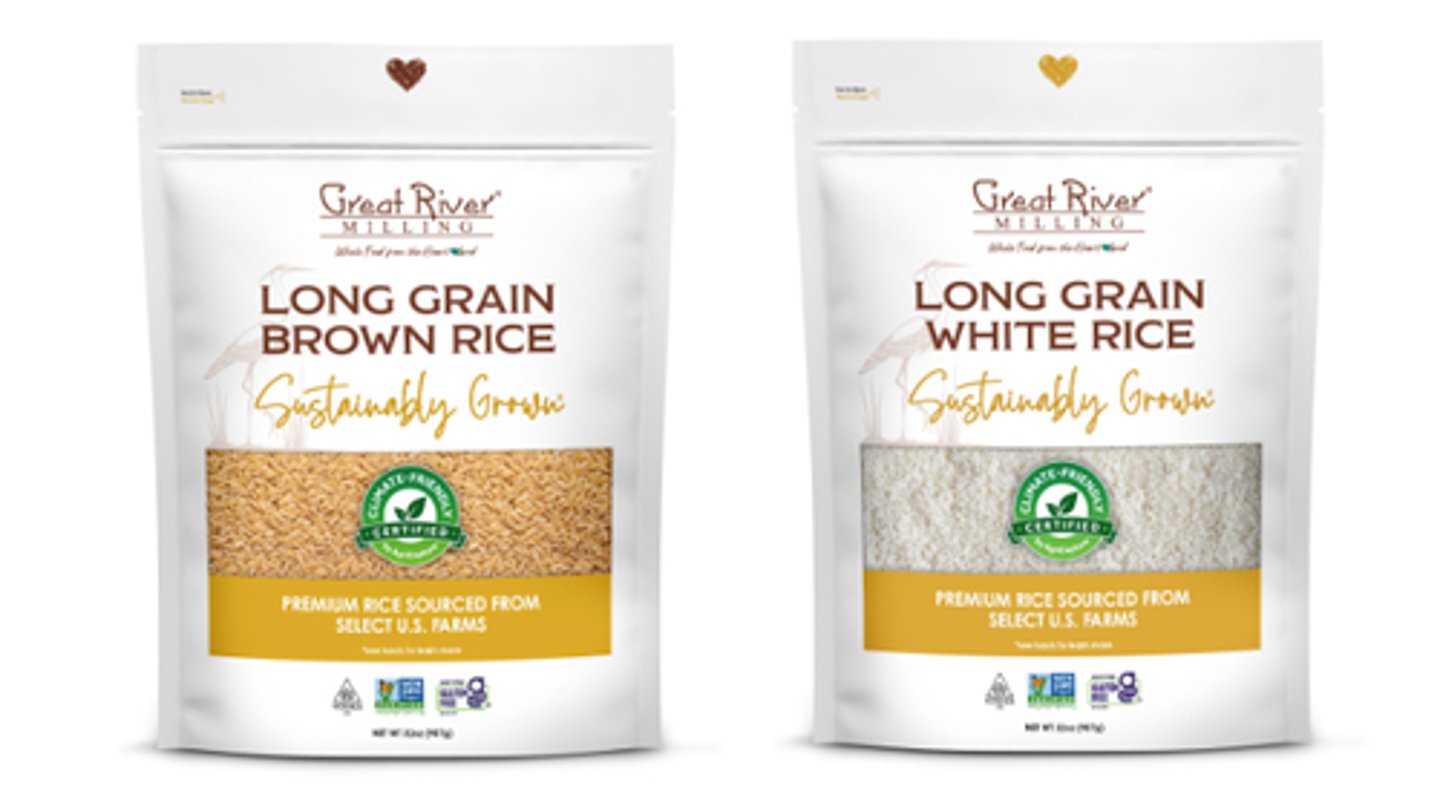Enrich Foods Eyes Private Label Growth
In the months following the acquisition of Great River Milling by Columbia Grain International (CGI), the company has been focused on building a new entity that when fully operational will provide opportunities to work with retailers in the private label space.
Bill Germano, chief operating officer of Enrich Foods, LLC, the subsidiary formed by CGI to acquire Great River, is comfortable in admitting the company has long operated under the radar despite its size and impact on the grain industry in the U.S. and globally. The company works with a network of more than 8,000 farmers across the northern U.S. and operates more than 60 processing facilities.
“We’re probably the largest food company you’ve never heard of,” he said. “We’re one of the largest grain exporters in North America dealing with some 45 countries. We are grain traders and commercial suppliers.”
While the company throughout its history has been, essentially, an ingredient supplier, it is now looking for opportunities to work directly with retailers to supply finished products.
“We believe that trends in the industry and the growing importance of retailer own brands support how the whole nutritional equation is changing, and we think there is an opportunity for us to help close that circle,” Germano said.
The first step in that effort was the formation of Enrich Foods, which was used to acquire Great River Milling. In addition to now having access to a new production facility, Great River is no stranger to private label, currently supplying products to several well known grocery chains.
In an interview with Store Brands, Germano discussed the next steps for CGI as the company evolves in an effort to become a player in the world of private label.
STORE BRANDS: As the company moves forward, what are the next steps in its evolution?
BILL GERMANO: What really drove us is that while we’ve been a leading source of commodity supply we hadn’t completed the circle to the industry that serves consumers directly. The Enrich Foods formation was really the result of a downstream market strategy that we've been developing for several years to enable us to better use the resources we have and in turn provide greater value to the retail supply chain. When we look at private label in particular, we think our size, scale, and market reach can bring real value through the range of products we offer.
STORE BRANDS: What are some of the assets CGI can offer retailers seeking private label products?
GERMANO: First off is scale as we’re already a major supplier of grain commodities in the U.S., conventional as well as organic. And we have resources such as food scientists and product development teams available throughout our network to help bring added value. Our aim long-term is to develop ourselves as a fully capable resource to help with innovation and growth, and at the same time provide major customers with a stable source of products. And stability is important. Commodity grains are vulnerable to changes in pricing and supply, and especially now supply can be affected by situations beyond our control. We have the ability to stabilize supply that some others may not.
STORE BRANDS: It also sounds like the access CGI has to various grains also provides the opportunity for better prices and speed to market?
GERMANO: Absolutely. That's really the whole point. We couldn't complete that circle until we had the ability to also pack, and that's what Enrich Foods enables us to do.
STORE BRANDS: What types of products will you be able to provide to retailers?
GERMANO: A range of edible grains in various formats. Our range goes beyond just core grains, very much into beans, pulses, legumes, rice, and organic flour. Categories that are staples and very much relevant as a source of healthy nutrition. Products such as lentils for example, which we are finding to be a resurging growth category as people are understanding all of the nutritional benefits of lentils and how to use them. We're trying to take products such as that and make them more relevant by adding different choices, organic, you name it. If a retailer has a need for a specific product, chances are we're able to supply it.
STORE BRANDS: Is there also an opportunity for the company to help retailers address the growing demand for organic products or items that meet various dietary needs?
GERMANO: Organic is a great growth opportunity, especially for retailer own brands, and a great way to reach out to new consumers. These products are not traditional and for many manufacturers it’s expensive for them to do these types of products at scale. But our network of farmers gives us an advantage. We also have a certification from the American Heart Association that allows us to use the Heart Smart label on some of our products. Part of that arrangement also allows us to put that endorsement on all private label products we sell.
STORE BRANDS: How does CGI tackle the issue of sustainability?
GERMANO: CGI is committed to sustainability throughout the supply chain, from working with farmers all the way through to reducing the impacts of the supply chain. One example is our recent launch of Sustainably Grown Rice, a program developed by Ag Tech partner AgriCapture and is the first product funded by the USDA’s Partnership for Climate Smart Commodities initiative to hit store shelves. It’s a breakthrough first of all for its ability to measure and certify significant reduction of factors such as water usage, greenhouse gas reduction, and other factors that are inherent with rice production. And even more important is the scale that keeps the cost accessible to a mainstream market. We think it’s an ideal opportunity for retailers to support their own sustainability initiatives. And we continue to develop our range of products across other commodities to meet the sustainability needs of retailer brands.


